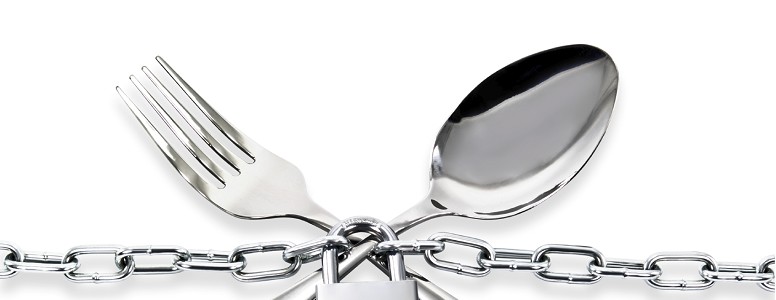Many studies tout the health benefits of fasting. We now know that when we refrain from giving our bodies food, the body will heal itself.
When given the opportunity, the body will seek to restore balance to all its systems. Studies outline the many health benefits of fasting on our physical bodies, but there are also benefits we experience on a spiritual and emotional level.
Studies outline the many health benefits of fasting on our physical bodies, but there are also benefits we experience on a spiritual and emotional level.
However, to receive the full benefits of fasting during Ramadan, it’s best to follow the sunnah and not sleep all day or overeat.
? Read Also: The Best Ramadan 2020 Goal!
In order to better understand this, let us first understand detoxification and what is happening on the physical level.
What is Detoxification?
Detoxification is most often thought of as the body’s way of clearing away impurities. This is true, but it is something the body is constantly doing.
Our body uses various systems to carry away harmful substances. This includes the skin’s sweat glands, the lymph nodes, tears, nose, gastrointestinal tract, throat, lungs, kidney, gallbladder and, of course, the liver.
A dysfunction in one system can lead to an overburden and failure of another system. The body’s systems must all function as a team in order to remove waste from our body.
Overeating seriously reduces our body’s ability to benefit from fasting because it hinders the purpose of reducing food intake and allowing the body to remove waste more effectively.
Many chronic diseases have been linked to the toxic burden our body bears and its inability to remove waste efficiently (1).
Toxins that aren’t eliminated by other systems are passed to the liver where they are changed through two specific pathways in order to be excreted. Both pathways must function properly or the waste remains in the body, trapped in our cells, tissues and organs (2, 5, 12).
Although we normally understand detoxification as a removal of toxins from the body, we can experience emotional and spiritual cleansing as well.
Spiritual Mend
Ramadan is a great opportunity for spiritual renewal. We have the time, if we make it, to expand our acts of worship. But more importantly, by fasting, we are in a continual state of remembrance.
Yet some people choose to sleep during the day and stay awake all night, missing the spiritual awakening that can occur during this fasting time.
Prayer, dhikr (reciting short prayers) and meditation also benefit the fasting body by encouraging relaxation and reducing the production of stress hormones that the body would then need to remove.
Also, many people remove addictive substances from their diet during Ramadan, which can produce a deeper connection to our religious beliefs. The potential for spiritual growth is exponential when we remove the distractions and inhibitors.

Psychological Healing Too
Some people might think that emotions have no effect on our bodies, as if they are somehow outside of us. Yet, our emotional reactions to outside stimuli are in fact a complicated biochemical cascade that our bodies have to deal with on a daily basis.
The hormones that are secreted by our glands in reaction to emotional responses end up as metabolic waste. The more stressed we are, the more the body has to clean up (5).
Dr. Dietrich Klinghardt notes that emotional trauma lodges in our very tissue and can cause dysfunction. If these toxic emotions aren’t addressed constructively, the detoxification/healing process won’t happen or it will become ineffective (12).
This plays directly into the detoxification pathways of the liver. As we enable our bodies to remove excess metabolic waste though fasting, we are also aiding our emotional detoxification.
Ramadan is a time for renewal and regeneration if we follow the sunnah. When we do, we reap not only the well-known physical benefits, but the added benefits to our spiritual and emotional wellbeing.
This article is from our archive, originally published on an earlier date, and highlighted now for its importance
References:
- Brady, David, ND, “The Role of Detoxification and the Gastrointestinal Environment in Chronic Disease: Novel Diagnostic and Therapeutic Approaches.” Conference. June 17, 2006, Los Angeles.
- Brady, David, ND, JJ Virgin, “Detoxification for Health.” Designs for Health booklet, East Windsor, CT.
- Al-Jauziyah, Ibn Qayyim, Healing with the Medicine of the Prophet, trans. Jalal Abdu Rub, (Darussalam: Riyadh) 1999.
- Gates, Donna, The Body Ecology Diet (Healthful Communications, Inc: Juno Beach, Florida) 1996.
- Murray, Michael, ND, Total Body Tune-Up (Bantam Books: New York) 2000.
- Murray, Michael, N.D. The Encyclopedia of Nutritional Supplementation (Prima Publishing: Rocklin, Ca) 1996.
- Pollan, Michael The Omnivore’s Dilemma (Penguin Press: New York) 2006.
- Roehl, Evelyn Whole Food Facts (Healing Arts Press: Rochester, Vermont) 1996.
- Shelis, Maurice, Moshe Shike, A Catharine Ross, Benjamin Caballero, Robert J. Cousins, ed. Modern Nutrition In Health and Disease (Lippincott Williams & Williams: New York) 2006.
- Whitney, Ellie and Sharon Rady Rolfes, ed. Understanding Nutrition (Thomson Wadsworth: Belmont, Ca) 2005.
- Steingraber, Sandra, Having Faith (Berkley Books: New York) 2003.
- Klinghardt, Dietrich MD, PhD “The Connection Between Heavy Metals, Chronic Infections (including Candida) and the Aftereffect of Psychological Trauma.” Designs for Health Professional Resources, July 12, 2006.

